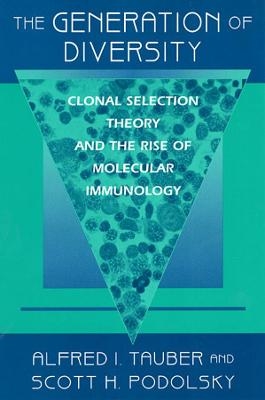
The Generation of Diversity
Harvard University Press (Verlag)
978-0-674-00182-4 (ISBN)
In recent decades immunology has been one of the most exciting--and successful--fields of biomedical research. Over the past thirty years immunologists have acquired a detailed understanding of the immune system's unique recognition mechanism and of the cellular and chemical means used to destroy or neutralize invading organisms. This understanding has been formulated in terms of the clonal selection theory, the dominant explanation of immune behavior. That story is the subject of The Generation of Diversity.
A major problem for immunologists had long been to determine how cells of the immune system could produce millions of distinct antibodies--and produce them on demand. The clonal selection theory explains that cells with genetic instructions to produce each antibody exist in the body in small numbers until exposure to the right molecule--the antigen--triggers the selective cloning that will reproduce exactly the cell needed. But how can so many different antibody-producing cells be generated from such limited genetic material? The solution to this question came from new applications of molecular biology, and, as the authors argue, the impact of the new techniques changed both the methods and the concepts of immunology.
The Generation of Diversity is an intellectual history of the major theoretical problem in immunology and its resolution in the post-World War II period. It will provide for immunologists essential background for understanding the conceptual conflicts occurring in the field today.
Alfred I. Tauber is Professor of Medicine and Philosophy and Director at the Center for Philosophy and History of Science, Boston University. He is the author of The Immune Self: Theory or Metaphor? and coauthor of Metchnikoff and the Origins of Immunology. Scott H. Podolsky is a First-Year Resident in Medicine at Brigham and Women's Hospital in Boston.
A conceptual orientation; the Burnet legacy; CST and molecular immunology - a dogmatic alliance; interlude - the conventional history; germline, somatic mutation and recombinatorial models - 1960-1974; immunobiological theories of antibody diversity; from protein to DNA; the recombinant revolution; interlude - a historigraphic reappraisal; heavy chain diversity and the molecular finale; an accounting; the fate of the immune self.
| Erscheint lt. Verlag | 25.5.2000 |
|---|---|
| Zusatzinfo | 6 halftones, 17 line illustrations, 1 table |
| Verlagsort | Cambridge, Mass |
| Sprache | englisch |
| Maße | 149 x 227 mm |
| Gewicht | 626 g |
| Themenwelt | Studium ► Querschnittsbereiche ► Infektiologie / Immunologie |
| Naturwissenschaften ► Biologie ► Biochemie | |
| Naturwissenschaften ► Biologie ► Genetik / Molekularbiologie | |
| Naturwissenschaften ► Biologie ► Zellbiologie | |
| ISBN-10 | 0-674-00182-6 / 0674001826 |
| ISBN-13 | 978-0-674-00182-4 / 9780674001824 |
| Zustand | Neuware |
| Haben Sie eine Frage zum Produkt? |
aus dem Bereich


